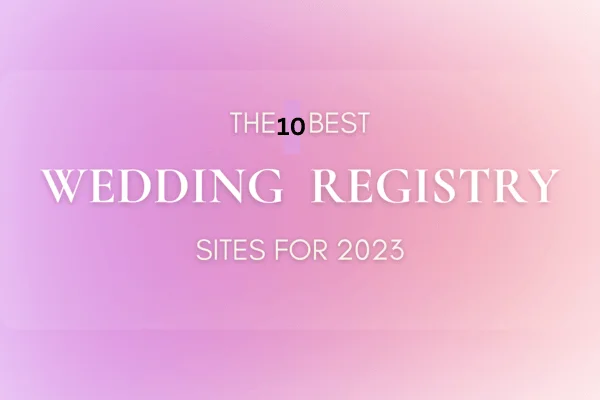Affiliate marketing allows you to act as a third party to promote products and earn commissions. Learn all about affiliate marketing and how you can get started yourself.

Affiliate marketing is a marketing model in which third-party publishers promote the seller’s products or services and receive a percentage of the sales or web traffic. It is considered a core component of modern digital marketing.
Affiliate marketing is attractive to businesses because it allows them to achieve their marketing goals at a low cost. It benefits affiliates by allowing them to earn income simply by promoting products they use and enjoy. Generating affiliate income requires developing a platform and building an online audience. In addition, it is important to be informed Stay up to date with trends in the affiliate marketing industry. New technologies like generative artificial intelligence, social platforms like TikTok, and changing consumer behavior over time will change the way you interact with your audience and how they respond to you.
Read on to learn about this career path, how affiliate marketing works, and how to get started on your journey in the industry. If you’re ready to develop your skills in this field, consider enrolling in the Meta Social Media Marketing Professional Certificate.
What is affiliate marketing?
Affiliate marketing is a revenue-sharing marketing method in which a third-party affiliate, such as a blogger, YouTuber, or influencer, promotes a company’s products or services to help them achieve their sales or marketing goals. In exchange for generating sales, the affiliate receives commissions or rewards. A company can partner with an affiliate to:
- Increase sales
- Attract more website traffic
- Improve brand awareness
- Connect with the affiliate audience
For example, a shoe company might partner with a fitness blogger to reach its audience of fitness-minded readers. Thanks to the bloggers’ efforts, the shoe company can drive more traffic to its website and increase sales. Some of these new customers may become long-term subscribers. The appeal of affiliate marketing is that companies can partner with affiliates at a low cost. Typically, companies offer rewards or compensation to their affiliate marketing partners, such as:
- Commissions (a percentage of sales)
- Free products and samples
- Exclusive rewards
- Networking opportunities
- Access to training or education
While revenue sharing is not a new marketing concept, modern affiliate marketing typically refers to online digital marketing marketing, in which partners link to a company’s product or service online and receive a certain percentage of sales or web traffic.
How do affiliate marketing programs work?
Affiliate marketing involves a relationship between four main players: the affiliate, the merchant, the affiliate network, and the customer. Each plays a unique role in the marketing process.
- Affiliate (or “publisher”). This is the person or organization that promotes the merchant’s product or service.
- Merchant. This is the person or organization that sells the product or service promoted by the affiliate.
- Affiliate network. The network acts as an intermediary between the affiliate and the merchant’s affiliate. While affiliates and merchants can connect without an affiliate, this is a common way for such relationships to occur.
- Customer. A customer is anyone who purchases a product through the affiliate. Merchants work with affiliates to connect with their audience and convert them into customers.
As an affiliate, you can connect with vendors through affiliate marketing programs. After making some initial connections through the program, you can find other relevant vendors and gradually build a broad network of brand partners in a specific niche. For example, if you are an affiliate who reviews cell phones, an affiliate marketing program might offer a range of tech products that you can review. This way, you can build a network in this niche and focus on reaching new customers interested in tech products.
Sometimes an affiliate and vendor connect organically, through direct contact. For example, a vendor who makes cake pans might connect with an affiliate who blogs about cookies to introduce their products to their cookie-loving audience.
You can learn more about how to create and manage a content calendar to connect with your audience using UC Davis’ content marketing strategy.
Affiliate marketing examples
You’ve probably seen examples of affiliate marketing before, even if you didn’t know it. That’s because the most effective affiliate marketing is often accompanied by quality content that readers enjoy and find useful. While it can be tempting to promote different products to generate sales and drive traffic to your store, affiliates who have built trust with their audience by highlighting their trusted quality products are more likely to inspire audience members to make a purchase. In other words, quality and relevance sell.
Some common examples of affiliate marketing include:
- Sites that cover general topics and sometimes include affiliate links in blog posts or articles, like this list of kitchen essentials compiled by kitchen site thekitchn.
- YouTube videos that include affiliate links in the description, such as Android Affiliate’s “Best New Tech of CES 2024” video.
- Websites that specialize in product reviews that appeal to a targeted audience, such as Gear Patrol and Wirecutter.
Affiliate marketing salary
Affiliate income is highly variable and often fluctuates from year to year because affiliates earn based on the results of their work, rather than a standard hourly or annual salary. Additionally, it can take time for an affiliate to build an online audience and start making money. Despite the differences in pay structures, several job sites provide information on how much the average affiliate marketer can earn. As of May 2025, these sites report that the average affiliate marketing salary is as follows:
- ZipRecruiter: $82,015 [2]
- Pay Scale: $56,141 [3]
- Glassdoor: $58,656 [4]
How do affiliate marketers earn money?
Unlike some sales positions, affiliates can earn money even if the person they refer doesn’t buy a product. While some affiliate marketing programs pay per lead, you’ll also find programs that offer pay-per-click or pay-per-sale.
- Pay-per-click: With pay-per-click affiliate marketing, you can earn a commission every time a user clicks on a link that redirects them to your affiliate partner’s website.
- Pay-per-lead: Pay-per-lead affiliate marketing allows you to earn a commission every time a user you refer takes a lead-based action, such as filling out a contact form or subscribing to a newsletter.
- Pay-per-sale: Pay-per-sale is similar to more traditional sales commission structures, where you earn a percentage or a flat fee every time a user makes a purchase for your affiliate.
How to start affiliate marketing
Becoming an affiliate involves choosing the niche you want to work in and choosing the right digital channel to market your affiliate products or services. You can also join an affiliate marketing network to build relationships and increase your reach. In addition, you will continue to expand your network through different digital channels and strategies, stay informed about current trends, and constantly develop your skills.
Are you ready to start your adventure? Follow the steps below to make the process easier.
1. Pick your niche.
Affiliates are valuable to sellers because they can reach a specific audience of potential customers. The better you define your niche, the easier it will be to create a collaborative platform and create original content that meets the needs of your audience.
Ideally, the niche you focus your affiliate marketing efforts on should be related to your interests and the interests of a large, underserved audience. Use Google Trends to find out what people are searching for online that might be related to your niche.
During this research phase, ask yourself the following questions:
- What topic, hobby, or industry am I particularly interested in that isn’t currently being offered?
- What physical or digital products do I use that I would like to promote?
- How can I bring a fresh perspective to a highly competitive topic?
- What type of content would I like to create to cater to this niche and utilize my skills?
2. Pick a marketing channel that matches your niche.
Once you’ve decided on your topic, audience, and the products your affiliate marketing brand will cover, you’ll need to choose a marketing channel. While creating a review site is a popular strategy, you can also do affiliate marketing on social media platforms like Instagram. You may find that one channel is more suitable than another for your affiliate marketing goals, or that a multi-channel or multi-channel marketing approach is best.
Some common approaches and channels include:
- A dedicated product review site that is specifically geared towards providing readers with product information.
- A website or blog that covers a specific topic and includes links to relevant affiliates in articles or posts about that topic.
- Social media platforms like Facebook, Instagram, Twitter, or YouTube where you post content about the products and brands you promote.
3. Join an affiliate marketing network.
Affiliate networks connect affiliates and merchants. While it’s not always necessary to join an affiliate network, you’ll likely find that it makes it easier for you to build relationships with merchants and ultimately increase your potential to earn affiliate commissions.
The type of affiliate network or marketing program you join will depend on the type of products your audience is interested in. In fact, different types of affiliate marketing programs offer a wide range of products and services for different industries. To increase your chances of success, research the networks and programs that best suit your product and target audience.
Some examples of popular affiliate networks and programs include:
- Awin
- ClickBank
- Amazon Associates
- Rakuten Advertising
- Etsy Affiliates
- eBay Partner Network
- Coursera Affiliate Program
4. Expand your network.
Building a successful affiliate marketing platform takes time and dedication. However, to grow your audience, it’s helpful to use a combination of digital marketing strategies, such as:
- Content marketing
- Search engine optimization (SEO)
- Social media marketing
- Email lists
For example, you may find that a combination of timely email blasts and SEO content will improve your marketing efforts more than either one alone.
5. Be consistent and master your skills.
. In addition to time and dedication, affiliate marketing also involves a wide range of skills, including:
- Conducting market research to understand your audience
- Analyzing the competitive landscape to understand how you compare to other affiliate marketers in your industry
- Improving your writing skills to convey ideas and information through blogs, social media headlines, or emails
- Improving your presentation skills to convey ideas and information through slides, lectures, or live streams
- Improving your videography skills to create videos that will delight, entertain, and educate your audience
- Learning graphic design to create eye-catching graphics that relate to the products you are promoting and the message you are conveying
- Learning data analysis and marketing analytics to understand the effectiveness of your affiliate marketing campaigns
- Software such as customer relationship management (CRM) tools, use to track your marketing, sales, and customer experience data
The exact mix of skills you use in your marketing strategy will likely depend on the platform you’ve created, your target audience, and the approach you choose. For example, if you run a YouTube channel that reviews collectible toys, you’ll likely need a combination of video production, presentation, and social media marketing skills. However, if you run a website that only publishes written reviews of collectible toys, you’ll likely need to focus on developing your content marketing skills.
Over time, you can start to use all of these skills and more to attract visitors, create engaging content, and increase affiliate sales.
Watch this video for ideas on how to develop a marketing funnel that will help you reach your audience.
Affiliate marketing tips
As you begin to build your affiliate marketing business, follow these tips to get the most out of your efforts.
Study affiliate marketing strategies.
Staying up to date with the latest affiliate marketing strategies will allow you to optimize your time and resources and ultimately generate more revenue. Some strategies might include hosting a webinar on a specific topic and promoting affiliate products during the webinar, or building an email list.
Consider the rewards you can earn.
Once you understand the rewards available through different affiliate programs, you can choose which brands can help you reach your income goals. Be sure to ask potential partners about the commissions they offer, as well as other rewards for product sales, and incorporate these details into your overall affiliate strategy.
Build an affiliate dashboard.
An affiliate dashboard is a web interface provided by a partner or affiliate program so that you can view the performance of your campaigns, generate referrals, monitor your earnings and payouts, and much more. When establishing affiliate marketing partnerships with brands, make sure to ask about the dashboard they offer and the information you can track.
Cultivate strong relationships.
Since affiliate marketing is all about relationships, you should take steps to strengthen your relationships with your audience and the brands you promote. You can do this by staying informed about the latest developments, products, and initiatives from brands so that they can communicate accurate information to your audience.
Begin your affiliate marketing journey on Coursera
Inbound marketing allows you to generate passive income by creating engaging content and investing time and effort into growing your audience. Start developing your marketing skills with Meta’s Social Media Marketing Professional Certificate, Google’s Digital Marketing and Ecommerce Professional Certificate, or Unilever’s Digital Marketing Analyst Professional Certificate.
In these programs, you’ll practice skills like interacting with online customers, creating advertising campaigns, using analytics tools, and more. Once you’re certified, you’ll find it easier to find partnerships with your favorite brands.




